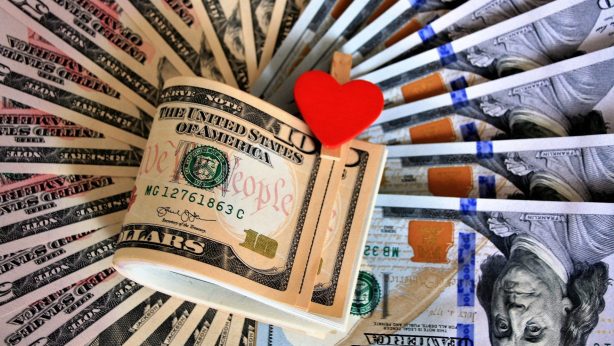MONEY IN OUR LIVES: An Unsophisticated Look at the Meaning of Money in our Life and Times
At whatever age we lived in, money had a role in our lives. Way back, it was a chip, a coin, an inorganic token of trust, a mutual trust, that represented an equivalency in a transaction between two people.
The value of the coin equaled the value of the item passed from one person to the other whether it was an animal given in exchange for the coin or a service rendered by one person for another. Each party was satisfied.
The Industrial Revolution changed all that. Machinery not only increased the output of a single person’s work time but the Industrial Revolution itself birthed large conglomerates or corporations (which in an ideal world hold within them a combined conscience) requiring large sums of money to construct huge things as buildings, railroads, etc, and it changed the way we think about money.
Money’s role was no longer simply a token of trust between two people or two corporations, or between a person and a corporation. Money became an additional facilitator in the synthetic expansion of what has become for us, a global universe, a planet covered with synthetic roads, buildings, airborne conveyors of organic people as well as synthetic or inorganic cargo.
Why have we given money the role of a principle in its own right when in the past it was always a go-between like an agent who facilitated business – always dependent upon the will of two consciences, two or more parties (be they any of the above-mentioned entities) – to facilitate the progress of civilization, but not to exist in its own inorganic right sometimes with little or no respect for equivalency in a transaction – the tradition of mutual trust on which transactions were founded?
People always had a symbiotic relationship with money depending upon the age they lived in. Now, that relationship – that intimate relationship of trust between negotiating parties, was abandoned – not really deliberately but because not enough thought was given to the real meaning of money. This real meaning became lost in the excitement of the marvelous experience of glorifying it as a stand-alone entity until it gained the status of a God.
The meaning of God was traditionally tied to a person’s conscience in the sense that acting in the path of God or choosing the path of ‘doing the right thing’ meant obeying a God-given conscience that understood the meaning of equivalency and insisted on following that path in all transactions.
In no transaction is one party benefitting at the expense of the other.
As civilization progressed that statement – meaning that in no transaction does one party gain at the expense of the other party or simply losing equivalency in a transaction, that revered statement of the past – has been blown away.
It has resulted in millionaires and billionaires living alongside human beings – now called homeless – wrapped in blankets, under trees, or bypasses etc. with sleek vehicles passing by, emitting their fumes for them to inhale. In addition, the homeless sometimes have a passing population often declaring that they (the homeless) prefer what they have. Where is there an overarching compassion?
Is there a solution for this? Yes, there is.
It is Humanity, the voice of enough people declaring that to each conscience there is an upper limit for personal expenditure. It can be as huge as the population en masse declares, a million perhaps for example. Then a second tier consists of recognition of an of a millionaire’s conscience in becoming part of spreading the money around more evenly, participating in this overarching compassion for all of their neighbors locally, etc. The third tier is looking out for others in other known places.
Then the highest tier of recognition is for helping the global population in becoming happy, healthy and wise in a purely unsophisticated way.



